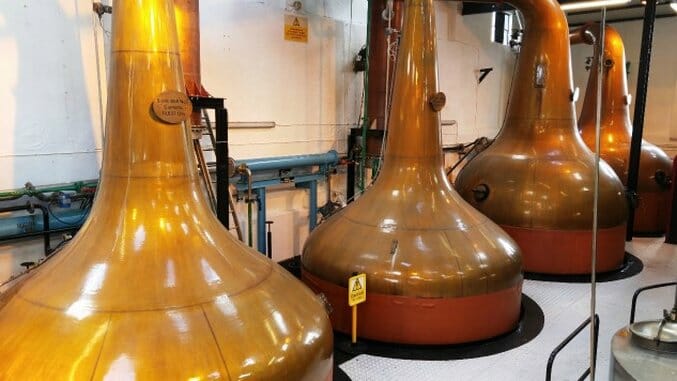
In our new Ask the Expert series, Paste readers chime in with some of their most pressing booze concerns, and we do our best to help you make sense of it all. Resident expert Jake Emen has spent years on the road traveling to distilleries across the country and around the world, and he’s here to help. Want your own question answered? Send a Tweet to him @ManTalkFood using #AskTheExpert.
A lot of people know a whole lot more about whiskey than they did a few years ago. But still, enter your average bar and you’ll find plenty of folks confused about whiskey’s assorted classifications and terminologies. That includes the difference between bourbon and Scotch.
First, both Scotch and bourbon are whiskies, so they’re under the same umbrella but they’re legally defined in different ways. Quite importantly, that includes that they’re required to be made in different places.
Bourbon has to be made in the United States, although not necessarily from Kentucky. Scotch, as you may be able to infer from the name, has to be made in Scotland.
Is that the only way they’re different though? Not even close!
Bourbon can be made from a variety of grains but must consist of at least 51% corn. The most common other grains that are used for bourbon include rye, wheat, and malted barley, although an even more diverse spectrum is now being used as well.
Scotch is the domain of malted barley. Single malts or blended malts must be made from 100% malted barley. The “single” in this case also refers to the fact that the whisky is produced at a single distillery. Scotch grain whisky can be made with other grains, most typically corn or wheat, and blended Scotch includes a mixture of single malts and single grains.
Another way bourbon and Scotch are separated is in how they’re distilled. Scotch is typically, but not always, double distilled via copper pot stills. Bourbon is also typically, but not always, double distilled, and is most often run first through a column still.
There are always exceptions to these distillation rules, though. For instance, the Scotch single malt Auchentoshan is triple distilled, and bourbon brand Woodford Reserve is triple pot distilled.
There’s also the matter of maturation. Scotch carries a three year minimum age requirement and can be aged in a variety of cask types, including new or used barrels, ex-bourbon or ex-sherry casks, and many others.
Bourbon must be aged, but for no minimum amount of time. Technically, it could be filled into a barrel for a day before being removed and it’s still bourbon. However, bourbon must be aged in new charred oak casks. Since all bourbon must be aged in unused casks, it’s convenient for producers in Scotland and elsewhere to buy those used barrels for their own maturation.
Of course, there are other points of difference, as well as sub-categories of classification for both. But if you master the above, then you can settle any bourbon vs. Scotch bar debate.
Jake Emen is a freelance spirits, food, and travel writer working diligently to explore the world’s finest offerings so he can teach you about them—how selfless of him. He currently resides outside of Washington, D.C. when he’s not on the road. Keep up with his latest adventures at his own site, ManTalkFood.com, or follow him on Twitter @ManTalkFood.
